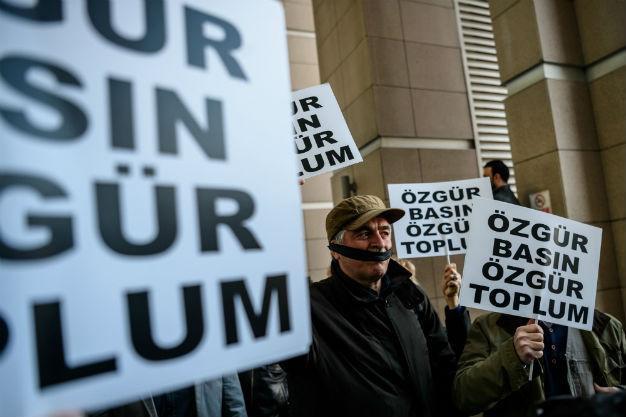PACE delegation to visit Turkey over democracy concerns
STRASBOURG

AFP photo
A delegation of co-rapporteurs from the Parliamentary Assembly of the Council of Europe (PACE) is set to pay a fact-finding visit to Turkey in the coming week, after its monitoring committee expressed “serious concern” over the state of democracy and freedoms in the country on March 9.PACE co-rapporteurs Ingebjørg Godskesen and Nataša Vuckovic will visit Istanbul, Ankara and the southeastern province of Diyarbakır for three days between May 9 and 12 in order to report on the state of democratic institutions in the country.
On May 9 in Istanbul they are scheduled to meet with members of the media, journalists’ associations and NGO officials, among others from civil society, as one of the criticisms of the monitoring committee was the restrictions on media freedoms and restraints on access to pluralistic information.
The delegation will spend May 10 in Diyarbakır, where they will meet the governor, mayor, public prosecutor and deputies from the region alongside representatives of human rights associations.
The human rights situation of people living in southeastern Turkey was another issue of concern for PACE, especially amid the collapse of peace talks and a rekindling of clashes between security forces and outlawed Kurdistan Workers’ Party (PKK) militants.
On the last two days of their trip, the delegation will be in the nation’s capital to hold meetings with the presidents of the Constitutional Court and the Supreme Court of Appeals, as well as Turkey’s foreign minister and other officials from the interior, justice, family and EU ministries.
In its March 9 statement, PACE also expressed alarm over challenges to the decisions of the Constitutional Court and the erosion of the rule of law.
Turkey’s Constitutional Court has long been targeted by President Recep Tayyip Erdoğan and the ruling Justice and Development Party (AKP) over its rulings on individual complaints, especially after the top court ruled for the release of daily Cumhuriyet editor-in-chief Can Dündar and Ankara bureau chief Erdem Gül.
Erdoğan vowed he would continue to stand against the top court’s verdict in line with his presidential duty to protect the constitution, saying, “I am responsible for monitoring the orderly and harmonious work of state bodies, the implementation of the constitution and representing the unity of the state and the people of the Republic of Turkey. Those who would exceed the boundaries of its authority will have to face me. I will never hesitate to voice my objections in the name of my people if the Constitutional Court opts for such a thing.”
















